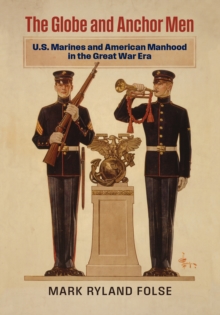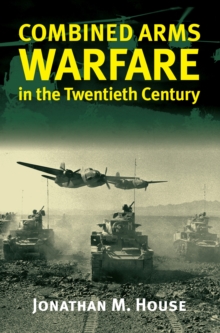
FDR and the Soviet Union : The President's Battles Over Foreign Policy Hardback
by Mary E. Glantz
Part of the Modern War Studies series
Hardback
- Information
Description
Throughout his presidency, Franklin Roosevelt was determined to pursue a peaceful accommodation with an increasingly powerful Soviet Union, an inclination reinforced by the onset of world war.
Roosevelt knew that defeating the Axis powers would require major contributions by the Soviets and their Red Army, and so, despite his misgivings about Stalin's expansionist motives, he pushed for friendlier relations.
Yet almost from the moment he was inaugurated, lower-level officials challenged FDR's ability to carry out this policy.
Mary Glantz analyzes tensions shaping the policy stance of the United States toward the Soviet Union before, during, and immediately after World War II.
Focusing on the conflicts between a president who sought close relations between the two nations and the diplomatic and military officers who opposed them, she shows how these career officers were able to resist and shape presidential policy-and how their critical views helped shape the parameters of the subsequent Cold War.
Venturing into the largely uncharted waters of bureaucratic politics, Glantz examines overlooked aspects of wartime relations between Washington and Moscow to highlight the roles played by U.S. personnel in the U.S.S.R. in formulating and implementing policies governing the American-Soviet relationship.
She takes readers into the American embassy in Moscow to show how individuals like Ambassadors Joseph Davies, Lawrence Steinhadt, and Averell Harriman and U.S. military attachs like Joseph Michela influenced policy, and reveals how private resistance sometimes turned into public dispute.
She also presents new material on the controversial military attach/lend-lease director Phillip Faymonville, a largely neglected officer who understood the Soviet system and supported Roosevelt's policy.
Deftly combining military with diplomatic history, Glantz traces these philosophical and policy battles to show how difficult it was for even a highly popular president like Roosevelt to overcome such entrenched and determined opposition.
Although he reorganized federal offices and appointed ambassadors who shared his views, in the end he was unable to outlast his bureaucratic opponents or change their minds.
With his death, anti-Soviet factions rushed into the policymaking vacuum to become the primary architects of Truman's Cold War containment policy.
A case study in foreign relations, high-level policymaking, and civil-military relations, FDR and the Soviet Union enlarges our understanding of the ideologies and events that set the stage for the Cold War.
It adds a new dimension to our understanding of Soviet-American relations as it sheds new light on the surprising power of those in low places.
Information
-
Available to Order - This title is available to order, with delivery expected within 2 weeks
- Format:Hardback
- Pages:264 pages
- Publisher:University Press of Kansas
- Publication Date:28/02/2005
- Category:
- ISBN:9780700613656
Other Formats
- EPUB from £34.65
Information
-
Available to Order - This title is available to order, with delivery expected within 2 weeks
- Format:Hardback
- Pages:264 pages
- Publisher:University Press of Kansas
- Publication Date:28/02/2005
- Category:
- ISBN:9780700613656



